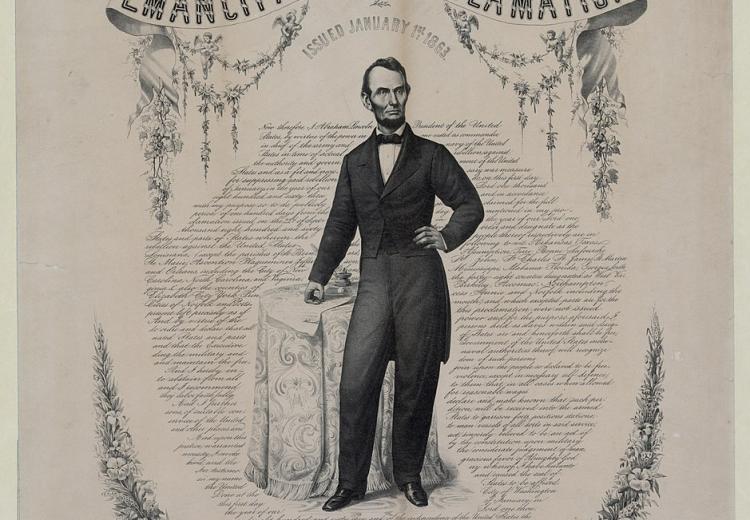The Emancipation Proclamation: Freedom's First Steps

Portrait of President Abraham Lincoln surrounded by the words of the Emancipation Proclamation (1863).
"And upon this act, sincerely believed to be an act of justice, warranted by the Constitution, upon military necessity, I invoke the considerate judgment of mankind, and the gracious favor of Almighty God."
–Abraham Lincoln, The Emancipation Proclamation, Jan. 1, 1863
While the Civil War began as a war to restore the Union, not to end slavery, by 1862 President Abraham Lincoln came to believe that he could save the Union only by broadening the goals of the war. The Emancipation Proclamation is generally regarded as marking this sharp change in the goals of Lincoln's war policy. Under his authority as the Commander in Chief, President Lincoln proclaimed the emancipation, or freeing, of the enslaved African Americans living in the states of the Confederacy which were in rebellion.
The Proclamation was, in the words of Frederick Douglass, "the first step on the part of the nation in its departure from the thralldom of the ages." Through examination of the original document, related writings of Lincoln as well as little known first person accounts of African Americans during the war, students can return to this "first step" and explore the obstacles and alternatives we faced in making the journey toward "a more perfect Union."
Guiding Questions
Why and how did President Abraham Lincoln issue the Emancipation Proclamation?
What was its impact on the course of the war?
Learning Objectives
Evaluate the provisions of the Emancipation Proclamation and its intended effect on the waging of the Civil War
Trace the stages that led to Lincoln's formulation of this policy
Explore African American opinion on the Proclamation
Document the multifaceted significance of the Emancipation Proclamation within the context of the Civil War era
